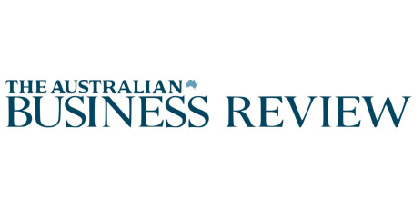The Australian Business Review: The era of the Fed’s economic tightening is over, says Hamilton Lane chairman Hartley Rogers
.webp?language=en-US)
By Glenda Korporaal
The more dovish members of the US Federal Reserve are ascendant – and only one or two rate increases are on the horizon, according to the chairman of US private investments giant Hamilton Lane.
Hartley Rogers, speaking during a visit to Australia on Tuesday, said US inflation was subsiding – and the central bank was “largely through with its aggressive raising.”
Mr Rogers, who spent two decades at Morgan Stanley and Credit Suisse, is a major investor in the Nasdaq-listed investment firm that has $US824bn ($1.2 trillion) in assets under management and supervision. He said the fund manager expected the Fed to raise rates by between 25 basis points and 50bp before it stopped.
“We see the chances of a soft landing are pretty good,” he said.
"The Fed did not want to push the US economy into a recession with the continued increase of interest rates this year," he said.
Last week, two Fed officials – Dallas Fed president Lorie Logan and Philadelphia Fed president Patrick Harker – said they would prefer the central bank raise rates by only 25bp at its next meeting.
The January 31 meeting would come after four consecutive 75bp increases as the Fed moved to tackle higher inflation. Both are voting members of the Federal Open Market Committee.
“It appears to us that the more dovish governors of the Fed have the upper hand and are saying ‘let’s not drive the economy into recession’,” Mr Rogers said in Sydney on Tuesday.
“The collapse of FTX has scared people. They don’t know where other hidden leverage might be in the global economy.
“They are concerned that if they keep raising rates aggressively there could be other problems created by doing that.”
Mr Rogers said there were no signs in its investment portfolios of companies his firm was investing in – which are largely in the US – suffering the kind of distress which would signal the country was about to go into a recession.
He said the Fed’s policy of using interest rates to cool inflation had “basically worked.”
“You have the housing market coming off, you have the backlog of inventories coming off and don’t have the same supply chain issues which were causing inflation,” he said. “There are signs things are slowing down, energy prices have come down and inflation looks like tapering off.”
The most recent US data, retail spending, was released last week and showed a sharp fall in December, marking the end of a difficult holiday shopping season as consumers contended with rising interest rates and inflation that remained stubbornly high, as well as concerns that the economy was slowing. A Fed report released on Wednesday found economic activity was relatively flat and businesses pessimistic about growth.
Mr Rogers said expectations were that the federal funds rate, which is currently in the 4.25 to 4.5 per cent range, could increase to 5 or 5.25 per cent.
“That’s the kind of zip code we are in,” he said. “It’s not what people were saying a few months ago when they were talking about it going to 9 per cent.”
While the Fed has said it wants to see inflation down to 2 per cent, he said he didn’t expect it to continue to focus on achieving this goal in the near term.
Mr Rogers said the view on the US was not as positive as it was in the heady days of 2020 and early 2021 but was not nearly as pessimistic as it was last year.
Investors were now looking at a “more normal world” where money was not free but required some thought and homework, he said.
“We are in a new world, but I don’t think it is a terrible world. It is a return to a more rational world where investing is hard,” he said.
Mr Rogers said private equity was finding it more challenging to raise funds but was finding better investment opportunities in the current market.
“There are plenty of good companies and opportunities for private equity. Financial discipline has returned to the conversation,” he said.
Private capital was expected to play an increasing role in the global economy going forward, as many companies now preferred to operate privately.
“It used to be that being public was considered the holy grail and the only way that entrepreneurs and early stage investors could realise the gains they made,” Mr Rogers said.
